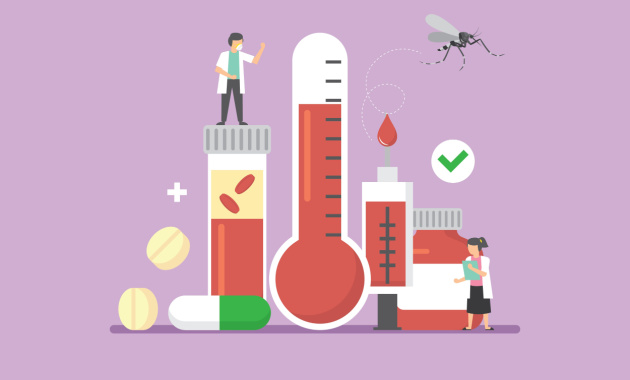
Monsoon season brings wonderful weather and lush greenery, relieving the scorching heat. However, it also increases the risk of diseases like cold, flu, and water-borne illnesses such as Diarrhea, Typhoid, Malaria, and Dengue. These diseases are more common during this time due to the wet climate, mosquito breeding, and water contamination. You need to be vigilant, especially if you have conditions like diabetes or heart disease, to minimize risks and lead a healthier life.
Taking proper precautions and preventive measures becomes imperative to avoid diseases. A complete medical checkup will help you understand any changes in your body and enable you to take the necessary steps on time.
Don’t let the monsoon catch you off guard. Schedule your monsoon health screening test!
Check here!
Here are some reasons to get yourself tested well in time:
1. Lack of Sunlight: Insufficient natural light exposure can disturb the body’s internal rhythm, impacting the production of mood-regulating neurotransmitters like melatonin and serotonin[1]. Sunlight is a natural vitamin D source and can help elevate your energy levels and combat lethargy.
Missing out on sunshine? Check if you have enough vitamin D levels!
Book here!
2. Binging on Fried Food: During the monsoon season, our bodies naturally crave fried foods for a reason. When we indulge in fried delights, they generate heat internally. Coincidentally, rainy weather tends to slow down our digestion process. As a result, the consumption of fried foods stimulates and enhances our digestive system. But on the other hand, fried foods are often high in unhealthy fats, such as trans fats and saturated fats, which can raise LDL (bad) cholesterol levels and contribute to an imbalance in cholesterol levels[2].
Regularly consuming fried foods can increase the risk of developing high cholesterol levels. This monsoon, keep your cholesterol levels in check!
3. Surge in Infection: Monsoons increase the risk of infections due to several factors. The combination of high humidity and stagnant water creates favorable conditions for breeding mosquitoes and gives rise to diseases like dengue, malaria, and chikungunya. Water-borne illnesses like typhoid and gastrointestinal infections like diarrhea are also more prevalent.
4. Heightened Allergies: Increased humidity and dampness in the air can worsen respiratory conditions such as asthma and allergies. By undergoing regular health check-ups, you can effectively manage these conditions and prevent flare-ups, ensuring better control and relief.
Take charge of your immunity this monsoon. Schedule your test!
Health screening can help identify and address the risks on time, enabling early detection and prevention of monsoon-related illnesses. It comprehensively evaluates your health status, helping you stay proactive, mitigate risks, and ensure overall well-being during this season. Do not hesitate and book a test today!
(The article is written by Dr.Subita Alagh, Senior Executive, and reviewed by Monalisa Deka, Senior Health Content Editor)
References
1. Blume C, Garbazza C, Spitschan M. Effects of light on human circadian rhythms, sleep and mood. Somnologie (Berl). 2019 Sep;23(3):147-156. Available from: https://www.ncbi.nlm.nih.gov/pmc/articles/PMC6751071/
2. Hesti Yuningrum, Merita Eka Rahmuniyati, Naomi Nisari Rosdewi Sumiratsi. Consumption of Fried Foods as A Risk Factor for Hypercholesterolemia: Study of Eating Habits in Public Health Students. Journal of Health Education 5 (2) (2020) 78-85. Available from:https://journal.unnes.ac.id/sju/index.php/jhealthedu/article/view/38683